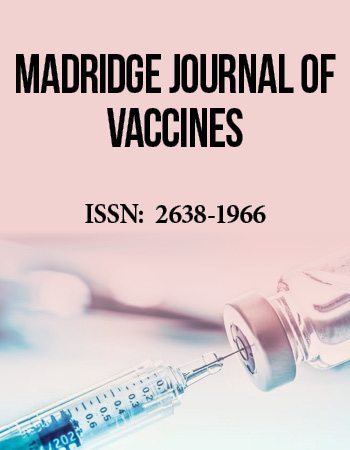International Conference on Vaccines
Feb 20-22, 2017 | Baltimore, USA
The management of advanced colorectal carcinoma having failed standard therapy – An immunologic Approach
Monter Cancer Center: Div. Northwell Health System, USA
In order to achieve effective control ofadvanced colorectal cancer having failed standard therapeutic approaches, we are employing specific monoclonal antibodies that were developed in our facility to target oncofetal proteins expressed in this tumor system. Phase II FDA trialshave been completed in this group of patients with evidence of positive therapeutic responses.
Pooled allogeneic tumor membrane protein was utilized to identify those immunogens found in colon cancer specimens with the goal of eventually employing them as therapeutic vaccines. Three oncofetal proteins that characterize colorectal Ca were identified. These proteins were evaluated for structure and the role they played in the developing malignancy. It was noted thatthey were always present in the tumor but at sub threshold levels necessary for activating the host immune system. In addition they were found to be absent in essentially all normal colon specimens examined.
Because of the sub threshold levels at which the single or combination of oncofetal proteins were expressed in the malignant state an ineffective immune response that is normally present with bacteria and viruses, is unable to prevent tumor growth and subsequent progression of disease. In order to obtain the needed host immune recognition of lesions such as metastatic colorectal cancer we have found that by pooling these oncofetaltumor membrane proteins, that the proper threshold level of antigen needed toact as an effective immunogen (vaccine), can be achieved. This level has been determined to be approximately 500 ugm. of antigen delivered intradermally in 3 divided monthly doses along with an effective adjuvant. In examining levels of antigen expressed in an entire tumor specimen used in our preparations it was rare to find levels above 10-25 ugm. This explains why once malignant transformation occurs, it continues unabetted since immune suppression is not initiated by the host immune system. Among those treated using pooled antigen as a vaccine, it was found that the high rate of clinical cures seen, was not achieved by the increased number of cytotoxic T cells, but rather by the expression of high levels of an IgG1 targeting the tumor immunogen with subsequent tumor destruction via ADCC (antibody dependent cell cytotoxicity).
At the 2015 ASCO GI Symposium in San Francisco, CA, results of the Phase 1 study of Neo-102 in chemotherapy refractory metastatic colorectal cancer patients revealed a Maximal Tolerated Dose of 3.0 mg/kg IV every 2 weeks. The overall survival observed in this demonstrated 10.4 months comparing favorably to the historical control for a similar population of patients with advanced colorectal Ca (5 months). This has led to a larger Phase 2 multi-center colorectal cancer study using Ensituximab(Neo-102) in the same patient population where results are being confirmed. Because tumors do shed an inhibitory molecule into the serum blocking many of the anti-tumor effects of IgG1 in its ADCC response, new trials are being designed to initiate the study somewhat earlier and with low dose chemo being added to minimize inhibitory antigen. This will follow with the eventual addition of IL-which does enhance NK cell activity.
Biography:
Dr. Myron Arlen, M.D. is a Principal Founder of Neogenix Oncology Inc. in 2003 and has been its Director of Medical Affairs since March 2010. Dr. Arlen has substantial executive experience in the biotechnology industry. Dr. Arlen served as the Chief Executive Officer of Neogenix Oncology Inc. from 2003 to March 2010. Dr. Arlen served as Chairman of Neogenix Oncology Inc. and served as its Director from 2003 to January 2012. Dr. Arlen was trained as a cancer surgeon at Memorial Sloan-Kettering where he remained on staff for 20 years involved in the surgery of advanced cancer problems and the immunotherapeutic approaches to managing the patients. Dr. Arlen established the Surgical Oncology Division at North Shore University Hospital, and formed a practice group (North Shore Surgical Oncology Associates). He has written two major textbooks and published over 80 journal articles related to cancer treatment. In the 1990ʼs, Dr. Arlen helped to found another biotechnology company, International Bio-Immune Systems, Inc. of which he was part of management until 2003


